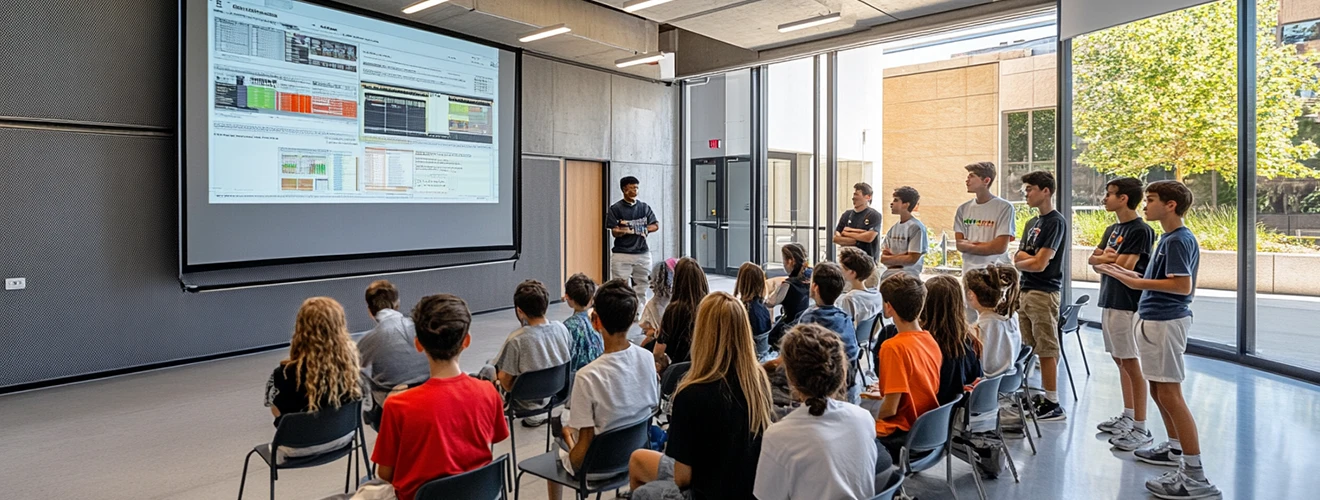
Pathways in Economics
Course Description
This program introduces students to the approaches to economic research and experimentation that make UChicago a world leader in the field. Full-time lecturers in the Department of Economics teach classes on topics in macroeconomics, microeconomics, game theory, and field experiments, drawing on research that applies the tools and insights of the field in new and exciting ways. Students will apply what they hear about in lectures during small group discussion sections facilitated by a team of outstanding current UChicago students, as well as in labs, problem sets, group projects, and other activities.
Course Criteria
This course is open to high school students only. Prerequisite: pre-calculus and a strong interest in using math to determine economic patterns
Academic Interest
Economics and Business, Computer Science, Data Science, Math, and Statistics, Social Sciences (e.g., history, psychology, sociology)
Application Materials
A complete application includes a transcript, two short essays, a letter of recommendation, writing sample, application fee, and a submitted parent confirmation. If you are seeking need-based financial aid, you must indicate that in your application before it is submitted. Please refer to the Application Instructions for complete details.
Instructor(s)
STAFF
Cost
$9,300
Other Courses to Consider
These courses might also be of interest.
 Introduction to Macroeconomic Models
Introduction to Macroeconomic ModelsThis course offers a comprehensive exploration of neoclassical macroeconomic models. Students will develop an in-depth understanding and analytical skills through frameworks and applications. The course emphasizes how these models explain economic growth, business cycles, and policy implications in modern economies.
The course is divided into five key modules:
(i) economic growth and production,
(ii) consumption and savings,
(iii) business cycles and unemployment,
(iv) fiscal policy, and
(v) monetary policy and forecasting.
Throughout each module, we extensively utilize relevant data to enhance the understanding of theoretical concepts. By the end of the course, students will be able to interpret macroeconomic news and articles and analyze policies through a model-based framework.
Residential Career Insight: Business and Entrepreneurship
Career Insight: Business and EntrepreneurshipBecome a leader with an eye for opportunities!
Explore possible paths to follow during and after college, as you look deeper into how you might pursue your passions. Your journey begins here at UChicago, a world leader in innovative business and economics teaching and research.
In the morning, UChicago professors, lecturers, and researchers will introduce you to key concepts and practices in fields like entrepreneurship, finance, leadership, and economics through lectures, discussions, readings, and other activities.
In the afternoon, connect with practitioners through presentations, informational interviews, and career treks around the city, and with Career Advancement staff who will help you consider what various career paths you might follow within the world of business and entrepreneurship and cultivate the skills you need to begin to pursue those opportunities.
You will put your skills and knowledge into practice in a small-group final project as well as individual reflection essays and other assignments.
Residential Economics from an Experimental Perspective - Session 1
Economics from an Experimental Perspective - Session 1A growing field in which the University of Chicago has been a leader, experimental economics uses experimental methods (i.e. observing everyday interactions and decisions made by people either in the lab or in the field) to explore economic questions ranging from how markets and other exchange systems work to what motivates people to make decisions about matters such as conserving environmental resources or donating to charitable causes. You will participate in laboratory experiments and discuss the results, thereby learning the underlying economic principles and the economic questions that the experiments were designed to address. You will also engage in solving specific economic problems both individually and in a group.
Residential